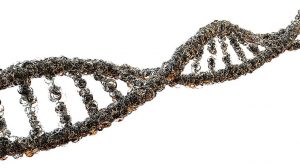Definition
noun, plural: point mutations
(genetics) A small-scale mutation characterized by a change of only one nucleotide base in the DNA or RNA molecule
Supplement
Mutation is a change in the nucleotide sequence of a gene or a chromosome. Based on the effect of mutation on the gene structure, mutations may be: (1) small-scale mutations or (2) large scale mutations. Small-scale mutations are a type of mutation where one or few nucleotides of a gene are affected. They are further classified as follows: substitution mutations, insertion mutations, and deletion mutations. When there is only one nucleotide involved, it is particularly referred to as a point mutation.
Point mutation occurring in noncoding sequences often does not result in an altered amino acid sequence during translation. However, if a mutation in the promoter sequence of a gene occurs, the effect may be apparent since the expression of the gene may cause changes in the amino acid sequence, as well as the structure and function of the protein product.
Point mutations may be classified based on functionality:
Depending on the type of nitrogenous base involved, this type of mutation may be categorized as:
Sometimes, point mutation also covers mutations caused by single nucleotide insertions or deletions (which are types of frameshift mutation). Point mutation may also pertain to substitution mutation when one nucleotide is substituted with a different nucleotide.
See also:






